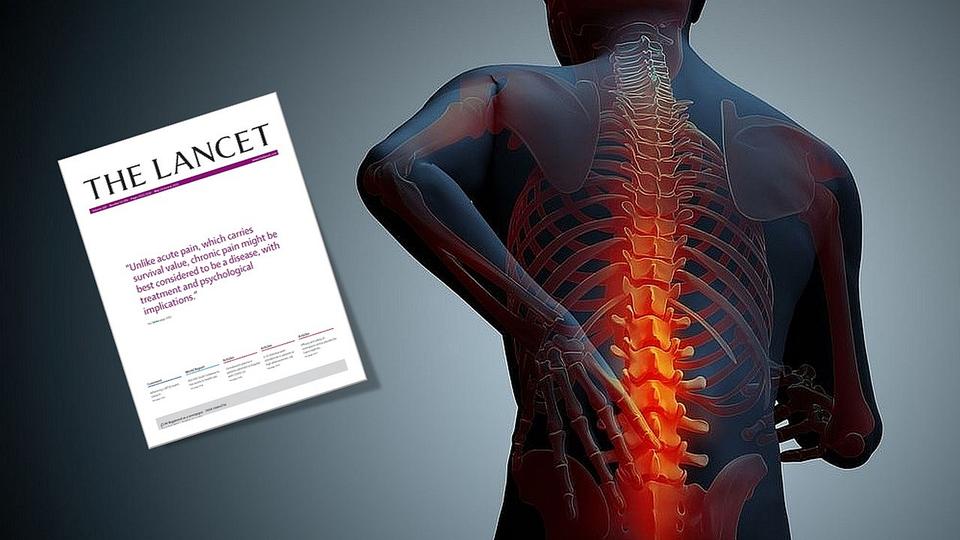
Researchers at Johns Hopkins Medicine have authored a series of articles in the May 29, 2021, issue of The Lancet that may serve as a guidebook for clinicians to navigate the complexities of chronic pain. Credit: Public domain image of chronic pain, The Lancet cover courtesy of the journal
Researchers at Johns Hopkins Medicine have authored a series of articles in the journal The Lancet as part of an effort by the publication to help clinicians navigate the complexities of treating chronic pain.
The three articles by the Johns Hopkins Medicine experts — part of a larger series in The Lancet published May 29, 2021 — describes new research and treatment advances that include an emerging news category of chronic pain; the psychological, biological and social factors that contribute to a person’s pain experience; and the potential risks and benefits of so-called neuromodulation therapies, which deliver electrical or chemical stimuli to the body’s neurological areas to suppress pain.
“Rather than a strictly physical, clinical categorization of pain, the appropriate definition of pain should be based on a patient’s psychological, biological and social factors,” says series lead author Steven E. Cohen, M.D., chief of pain medicine and professor of anesthesiology and critical care medicine, neurology, physical medicine and rehabilitation, and psychiatry and behavioral sciences at the Johns Hopkins University School of Medicine.
In the series, the Johns Hopkins Medicine experts advocate for personalized treatment plans that use a combination of therapies to manage a patient’s chronic pain. Accounting for a person’s age, medical history, and genetic and psychological factors when deciding on a treatment increases the likelihood of successful pain management and good health outcomes.
Additionally, the authors recommend that the invasiveness of procedures should be considered along with the patient factors.
Developing methods to identify patients that are likely to respond to a therapy, say the experts, is particularly important in invasive procedures, such as some neuromodulation therapies, the use of which has been on the rise in the last two decades. They emphasize that more high-quality research is needed to determine ideal patients for these therapies. However, this research often is difficult to perform due to practical limitations.
“We show that an interdisciplinary definition and approach — one that incorporates a patient’s individual experience and risk factors — is crucial to properly categorize and effective treat pain with neuromodulation,” says series co-author Eellan Sivanesan, M.D., director of neuromodulation and assistant professor of anesthesiology and critical care medicine at the Johns Hopkins University School of Medicine.
Sivanesan and Cohen are available for interviews.
Watch a video covering the articles here:
This news story was researched and written by Johns Hopkins Medicine science writing intern Haley Wasserman.
Media Contacts
-
Rachel Butch
